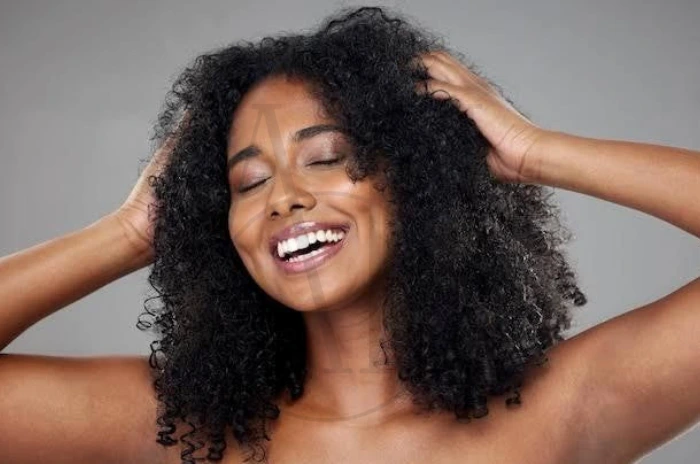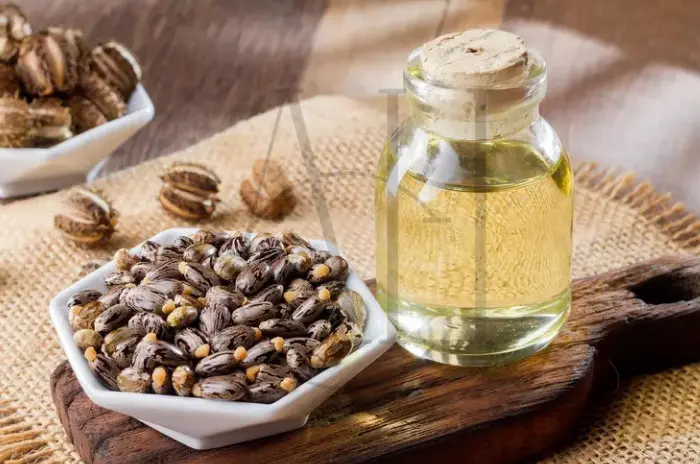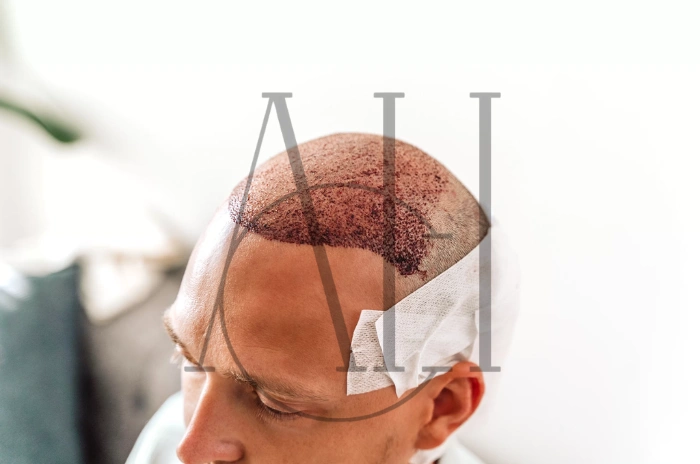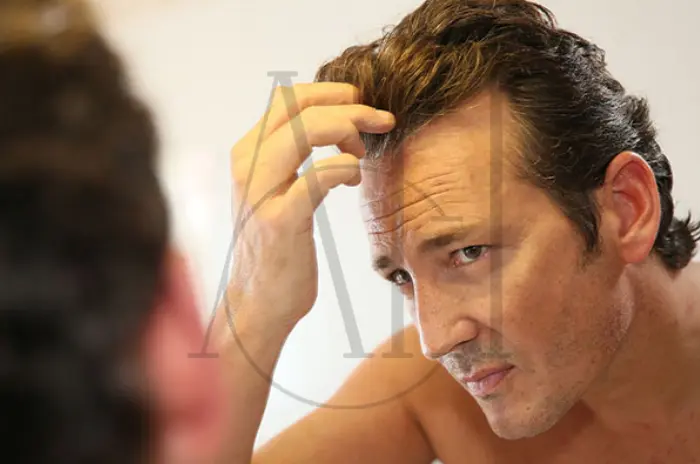Caring for African American hair requires understanding its unique structure and needs. Black hair care tips have evolved significantly, emphasizing the importance of moisture, gentle handling, and products specifically formulated for textured hair. When you choose black-owned hair products, you’re not only supporting businesses that understand your hair’s specific needs but also accessing formulations created by people who share similar hair experiences.
Daily black hair maintenance doesn’t have to be complicated, but it does require consistency and the right approach. Whether you’re a parent learning to care for African American hair or someone looking to improve your own African American hair care routine, understanding the fundamentals will help you achieve stronger, healthier hair.
Table of Contents
ToggleUnderstanding Black Hair and Skin Needs
Why Black Hair Needs Special Care
African American hair has a unique curved structure that makes it more fragile than straight hair. The natural curves and bends in each strand create weak points where breakage commonly occurs. This structure also makes it difficult for natural oils from the scalp to travel down the hair shaft, leading to dryness and the need for additional moisture for Black hair.
The protein bonds in Black hair are arranged differently, making the hair more porous and prone to losing moisture quickly. This is why traditional hair care products designed for straight hair often contain harsh ingredients that can strip away essential oils and cause damage.
Unique Characteristics of African American Hair
Natural hair care tips begin with understanding that Black hair grows in different patterns, from loose waves to tight coils. Each curl pattern requires slightly different care approaches, but all benefit from gentle handling and consistent moisture. The hair cuticle in textured hair is often raised, making it more susceptible to environmental damage and moisture loss.
Black hair also tends to be less elastic than other hair types, meaning it can break more easily when stretched or manipulated. This characteristic makes protective styling and gentle detangling essential parts of any effective hair care routine.
The Role of Skin and Scalp Health
Scalp care for Black hair is crucial because a healthy scalp promotes healthy hair growth. The scalp produces natural oils that help protect and nourish the hair, but these oils need assistance reaching the full length of curly and coily hair. Regular scalp massage with best oils for African American hair can improve circulation and oil distribution.
Skin and hair care go hand in hand, as the same ingredients that benefit facial skin often work well for scalp health. Gentle, non-comedogenic products help maintain the scalp’s natural balance without clogging pores or causing irritation.
How to Wash and Condition Black Hair the Right Way
Choose a Gentle, Moisturizing Shampoo
Sulfate-free shampoo for Black hair is essential because sulfates can strip away natural oils that textured hair desperately needs. Look for cleansing products that contain moisturizing ingredients like glycerin, aloe vera, or natural oils. These gentle formulations clean the hair and scalp without causing excessive dryness.
Co-washing, or conditioner-only washing, has become popular in the natural hair care community. This method uses a cleansing conditioner to remove dirt and buildup while maintaining moisture levels. Many people with Black hair find this approach works better than traditional shampooing.
Limit Washing to Once a Week or Less
Unlike other hair types that may need daily washing, African American hair benefits from less frequent washing. Washing once a week or even every 10-14 days helps preserve natural oils and prevents over-drying. This schedule allows the hair to maintain its moisture balance while still keeping the scalp clean and healthy.
Between wash days, you can refresh your hair with water-based leave-in conditioners or light oil sprays. This approach supports daily black hair maintenance without disrupting the hair’s natural oil production.
Use Conditioner Every Time You Wash
Conditioning is non-negotiable for Black hair care. Every wash session should include both a rinse-out conditioner and a leave-in product. The rinse-out conditioner provides immediate moisture and helps detangle the hair, while leave-in products offer ongoing protection and hydration.
Deep conditioning treatments should be incorporated into your routine at least once or twice a month. These intensive treatments help repair damage, add moisture, and strengthen the hair shaft from within.
Detangle Gently with a Wide-Tooth Comb
Proper detangling is one of the most important hair care tips for preventing breakage. Always detangle Black hair when it’s wet and coated with conditioner. Start from the ends and work your way up to the roots, using a wide-tooth comb or your fingers to gently separate tangles.
Never detangle dry African American hair, as this can cause significant breakage and damage. The slip provided by conditioner helps the comb glide through the hair without catching and breaking individual strands.
Moisture Is Key for Healthy Black Hair
Apply Leave-In Conditioner for Daily Hydration
Moisture for Black hair should be replenished daily with a quality leave-in conditioner. These products are formulated to provide ongoing hydration without weighing the hair down. Look for leave-ins that contain humectants like glycerin, which help attract moisture from the environment.
The LOC method (Leave-in, Oil, Cream) is a popular technique for layering moisture products. This approach helps seal in hydration and provides multiple levels of protection against dryness and environmental damage.
Seal in Moisture with Natural Oils
Best oils for African American hair include jojoba, argan, coconut, and olive oil. These natural oils help seal the hair cuticle and lock in moisture applied from leave-in conditioners. Different oils have different molecular weights, so experimenting with various options can help you find what works best for your hair.
Light oils like jojoba work well for fine hair, while thicker oils like castor oil benefit those with coarse or very dry hair. The key is to use oils sparingly – a little goes a long way in providing protection and shine.
Deep Condition Regularly to Prevent Dryness
Dry hair remedies often center around regular deep conditioning treatments. These intensive treatments should be done weekly or bi-weekly, depending on your hair’s condition. Deep conditioners contain concentrated moisturizing and strengthening ingredients that penetrate the hair shaft more effectively than regular conditioners.
Protein treatments can also be beneficial for Black hair, especially if it’s been damaged by heat or chemicals. However, these should be used sparingly and always followed by moisturizing treatments to maintain the proper protein-moisture balance.
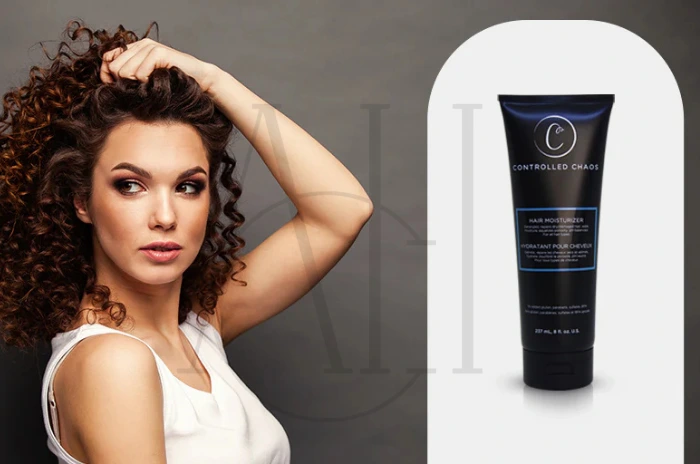
Protect Black Hair From Damage
Limit Heat Styling and Chemical Treatments
Preventing breakage in Black hair starts with minimizing heat exposure. When you do use heat styling tools, always apply a heat protectant first and use the lowest effective temperature. Regular heat styling can cause permanent damage to the hair’s protein structure, leading to dryness, breakage, and hair loss.
Chemical treatments like relaxers, perms, and color processes can also weaken African American hair. If you choose to use these treatments, ensure they’re applied by professionals and follow up with intensive conditioning and gentle care routines.
Avoid Tight Hairstyles That Pull on the Hair
Protective styling is beneficial for Black hair, but styles that are too tight can cause traction alopecia and hairline damage. Braids, weaves, and other protective styles for Black hair should feel comfortable and not create tension on the scalp or hairline.
Give your hair breaks between protective styles to allow the scalp to breathe and recover. During these breaks, focus on gentle care and deep conditioning to repair any minor damage from styling.
Use Satin or Silk at Night to Reduce Friction
Protect Black hair at night by sleeping on satin or silk pillowcases or wearing a satin bonnet or scarf. Cotton pillowcases can create friction that leads to breakage and frizz. Satin and silk allow the hair to glide smoothly, reducing tangles and preserving styles.
Wrapping your hair before bed also helps maintain moisture levels and prevents the hair from drying out overnight. This simple step can significantly improve your hair’s condition over time.
Daily and Weekly Black Hair Care Routine
| Day | Care Activity | Products Needed | Time Required |
|---|---|---|---|
| Daily | Light moisturizing and styling | Leave-in conditioner, natural oils | 5-10 minutes |
| Daily | Protective wrapping for sleep | Satin scarf or bonnet | 2 minutes |
| 2-3x/week | Gentle detangling | Wide-tooth comb, detangling spray | 10-15 minutes |
| Weekly | Full wash and condition | Sulfate-free shampoo, deep conditioner | 45-60 minutes |
| Bi-weekly | Deep conditioning treatment | Deep conditioner, heat cap (optional) | 30-45 minutes |
| Monthly | Scalp treatment and massage | Best oils for African American hair | 15-20 minutes |
| As needed | Protective styling | Styling products, accessories | 30-90 minutes |
Use a Wide-Tooth Comb or Detangling Brush
Daily black hair maintenance should include gentle detangling with the right tools. Wide-tooth combs and specially designed detangling brushes work best for textured hair. These tools have spacing that allows them to glide through curls without causing breakage.
Finger detangling is also an excellent option, as it gives you complete control over the pressure applied to your hair. This method takes more time but can be very effective for preventing damage.
Always Detangle While Hair is Wet and Conditioned
Wet detangling is a fundamental African American hair care routine practice. The moisture and slip from conditioner make it much easier to remove tangles without breaking the hair. Take your time during this process, working through small sections methodically.
If you encounter a particularly stubborn tangle, add more conditioner or detangling spray rather than forcing the comb through. Patience during detangling prevents unnecessary breakage and keeps your hair healthy.
Wash Every Week or 10-14 Days to Maintain Moisture
Establishing a consistent washing schedule helps maintain moisture for Black hair while keeping the scalp clean. Most people with African American hair find that washing once a week strikes the right balance between cleanliness and moisture retention.
Pay attention to your hair’s response to your washing frequency. If your hair feels dry or your scalp becomes itchy, you may need to adjust your schedule or switch products.
Dry Gently—Blot Don’t Rub, Air-Dry or Use Cap
Gentle drying techniques are crucial hair care tips for maintaining healthy Black hair. Never rub your hair vigorously with a towel, as this can cause breakage and frizz. Instead, gently squeeze or blot the hair with a microfiber towel or cotton t-shirt.
Air drying is the gentlest option, but if you need to speed up the process, use a diffuser on low heat. Hooded dryers and bonnet dryers can also be effective for deep conditioning treatments and gentle drying.
Essential Black Hair Care Tips for Healthy Hair
Choosing the Right Products for Natural Hair
Natural hair care tips emphasize the importance of reading ingredient lists and choosing products formulated specifically for textured hair. Avoid products with drying alcohols, sulfates, and other harsh chemicals that can strip moisture from Black hair.
Look for products that contain natural moisturizing ingredients like shea butter, aloe vera, and natural oils. Many black-owned hair products are specifically formulated with these needs in mind, offering effective solutions for common African American hair concerns.
Keep the Scalp Clean and Moisturized
Scalp care for Black hair involves regular cleansing and moisturizing. A clean scalp promotes healthy hair growth and prevents issues like dandruff and irritation. Use gentle, sulfate-free cleansers and follow up with lightweight oils or scalp serums.
Scalp massage can improve circulation and help distribute natural oils. This practice can be done with fingertips or specialized scalp massage tools, and it’s particularly beneficial when combined with nourishing oils.
Track Changes in Hair to Adjust Your Routine
Successful care for African American hair requires paying attention to how your hair responds to different products and techniques. Keep track of what works and what doesn’t, and be willing to adjust your routine as needed.
Seasonal changes, hormonal fluctuations, and age can all affect your hair’s needs. Regular assessment of your hair’s condition helps you make necessary adjustments to maintain optimal health.
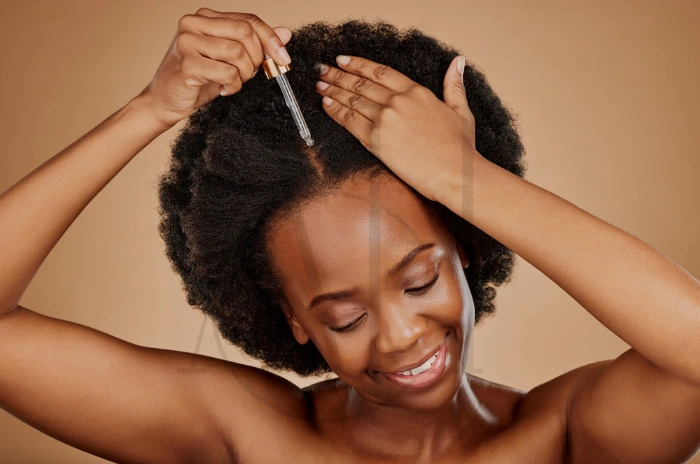
Scalp Care for African American Hair
How to Keep Your Scalp Healthy and Hydrated
Hair scalp care for African American hair focuses on maintaining proper moisture balance and circulation. Regular scalp cleansing removes buildup while preserving essential oils. Use clarifying treatments occasionally to remove product buildup that can clog pores and inhibit hair growth.
Scalp hydration can be maintained with lightweight oils like jojoba or tea tree oil. These oils provide moisture without clogging pores or creating greasy buildup. Apply them sparingly and massage gently into the scalp.
Common Scalp Issues and How to Fix Them
Dryness, flaking, and irritation are common scalp concerns for people with Black hair. These issues often stem from product buildup, over-washing, or using products with harsh ingredients. Gentle, consistent care usually resolves these problems over time.
If scalp issues persist, consider consulting a dermatologist or trichologist who understands African American hair. Some conditions may require specialized treatment beyond what regular hair care products can provide.
Preventing Damage and Promoting Hair Growth
How to Minimize Breakage in Black Hair
Preventing breakage in Black hair requires gentle handling at every stage of your routine. Use silk or satin accessories, avoid tight hairstyles, and always detangle with care. Regular trims help remove damaged ends before they split further up the hair shaft.
Protective styling can significantly reduce daily manipulation and environmental damage. However, ensure these styles aren’t too tight and give your hair regular breaks to prevent tension-related damage.
The Best Oils for Stronger, Healthier Hair
Best oils for Black hair include those that penetrate the hair shaft and those that seal the cuticle. Coconut oil can penetrate deeply to strengthen from within, while heavier oils like castor oil provide excellent sealing properties for moisture retention.
Experiment with different oils to find what works best for your hair type and porosity level. Some people prefer lighter oils daily and heavier oils for weekly treatments, while others use the same oil consistently.
Daily Habits to Support Hair Growth
Supporting hair growth involves both external care and internal health. Maintain a balanced diet rich in vitamins hair growth depends on, including biotin, iron, and vitamins A, C, and E. Stay hydrated and manage stress levels, as both affect hair health.
Gentle daily practices like scalp massage, protective styling, and consistent moisture application create the optimal environment for healthy hair growth. Remember that hair growth is a slow process, and consistency is key to seeing results.
Washing and Conditioning Black Hair
How Often Should You Wash Black Hair?
The frequency of washing African American hair depends on individual factors like activity level, scalp condition, and hair type. Most people benefit from washing weekly or bi-weekly, but some may need more or less frequent cleansing.
Listen to your hair and scalp to determine the right schedule. If your scalp feels itchy or oily, you may need to wash more frequently. If your hair feels dry or brittle, consider extending the time between washes.
The Right Way to Condition for Maximum Moisture
Effective conditioning for Black hair involves using both rinse-out and leave-in products. Apply conditioner from mid-length to ends, avoiding the scalp to prevent greasiness. Allow adequate time for the conditioner to penetrate before rinsing.
Deep conditioning treatments should be applied to clean, damp hair and left on for the recommended time. Heat can enhance penetration, so consider using a heated cap or sitting under a hooded dryer during deep conditioning sessions.
Protective Hairstyles for Black Hair
Simple Protective Styles for Kids
Black child hair care often involves protective styles that keep hair manageable and protected from daily manipulation. Simple styles like braids, twists, or buns work well for children and can last several days with proper maintenance.
Non-Black parents hair care tips include learning basic braiding techniques and understanding the unique needs of textured hair. Take time to learn proper detangling methods and invest in quality products designed for African American hair.
How Long to Keep Braids or Twists
Protective styles for Black hair should typically be kept for 2-8 weeks, depending on the style and hair condition. Longer styles like box braids can last 6-8 weeks, while simpler protective styles may need refreshing after 2-3 weeks.
Monitor your scalp and hairline while wearing protective styles. If you notice tension, irritation, or excessive buildup, it’s time to take the style down and give your hair a break.
Cultural Sensitivity in Hair Care
Why Respecting Black Hair Traditions Matters
Cultural sensitivity in hair care acknowledges the deep cultural significance of Black hair and traditional styling methods. Understanding this history helps create a more inclusive environment where all hair types are valued and properly cared for.
Traditional techniques like braiding, cornrowing, and natural hair care methods have been passed down through generations. These practices often contain wisdom about maintaining healthy African American hair that modern science is only beginning to understand.
Teaching Kids to Love Their Natural Hair
Helping children embrace their natural hair texture is an important part of building confidence and cultural pride. Teach children proper care for African American hair while emphasizing the beauty and versatility of their natural texture.
Use positive language when discussing hair care routines and avoid comparing textured hair to other hair types in ways that suggest one is better than another. Celebrate the unique qualities that make Black hair special and teach children to do the same.
FAQ : Black-Owned Hair Products for Strong and Healthy Hair
How often should I wash natural black hair?
Natural black hair should typically be washed once a week or every 7-14 days to maintain moisture while keeping the scalp clean.
What products are best for black hair moisture?
Leave-in conditioners, natural oils like jojoba and argan, and deep conditioning treatments are essential for maintaining moisture for Black hair.
What’s the right way to detangle black hair?
Always detangle Black hair when wet and conditioned, using a wide-tooth comb or fingers, starting from the ends and working up to roots.
How often should I deep condition?
Deep conditioning treatments should be done 1-2 times per month for healthy hair, or weekly if your hair is damaged or extremely dry.
Are protective styles good for natural hair?
Protective styles for Black hair are beneficial when done correctly and not too tightly, helping reduce daily manipulation and environmental damage.
How can I care for my scalp properly?
Scalp care for Black hair involves regular gentle cleansing, moisturizing with light oils, and scalp massage to promote circulation and hair growth.
How do I prevent heat and chemical damage?
Limit heat styling, always use heat protectants, choose gentle chemical treatments, and focus on moisturizing and strengthening treatments to maintain healthy African American hair.
Can I use oils to lock in moisture?
Yes, best oils for African American hair like coconut, jojoba, and castor oil effectively seal in moisture when applied after water-based products.

